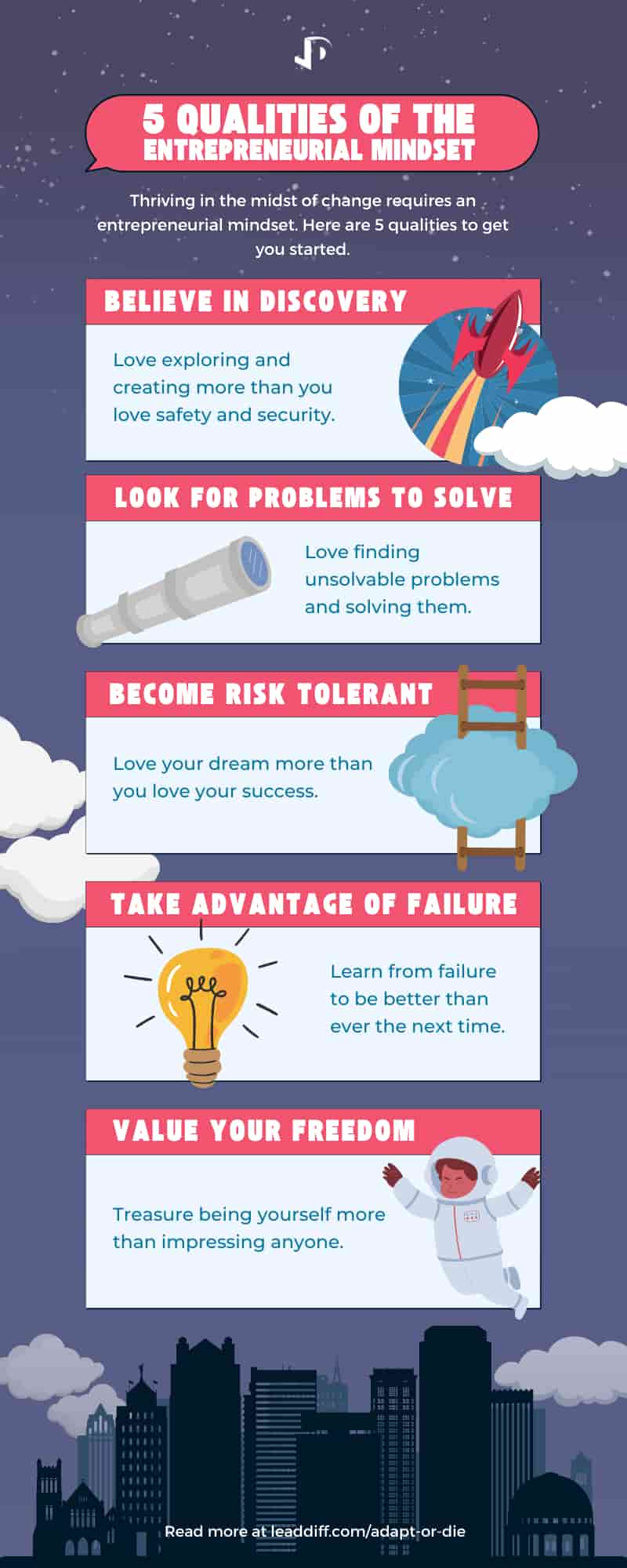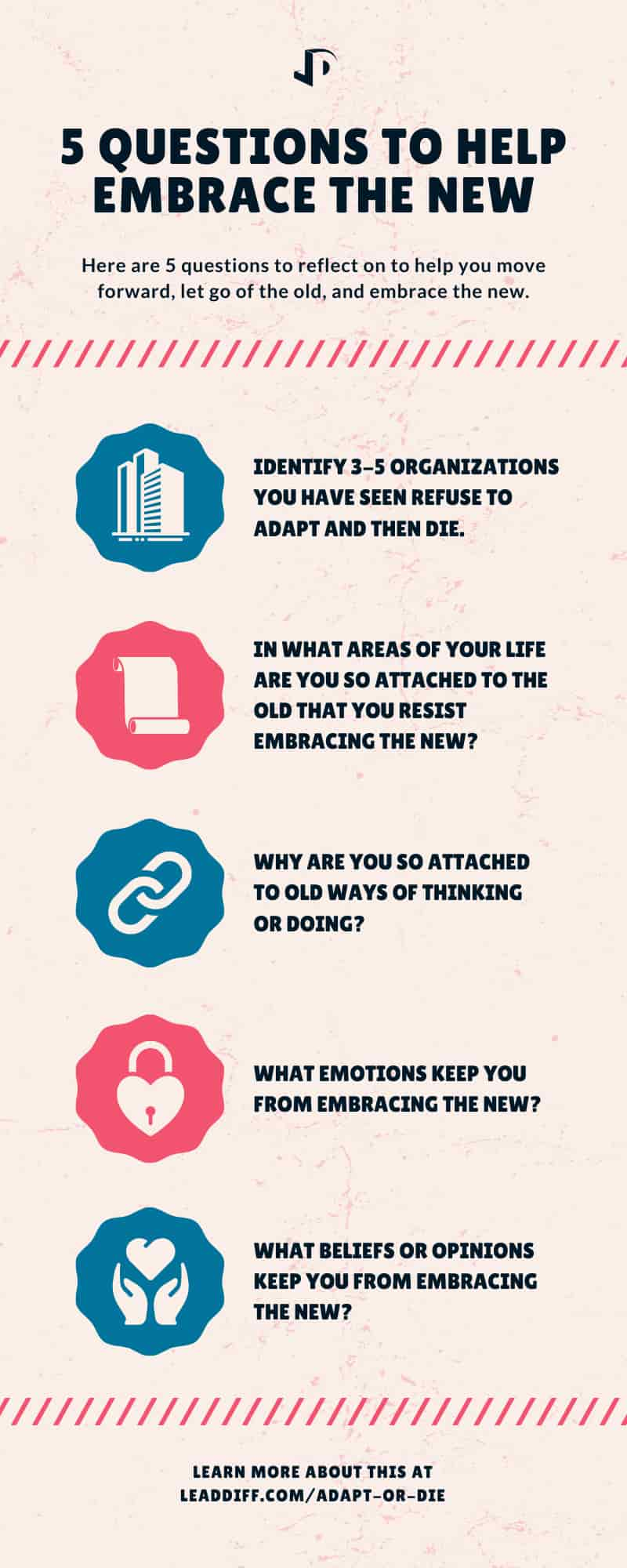
Adapt or Die
April 16, 2021
Russ Ewell
Competition and struggle influenced “the whole economy of nature.” It drove species to change and adapt. It created. It was the cost of doing nature’s business.
– The Book That Changed America: How Darwin’s Theory of Evolution Ignited a Nation, Randall Fuller
We live in a complicated world. This is not unique to our generation. Every generation faces a complexity beyond their comprehension. Each one is faced with the challenge to change and adapt or become obsolete and extinct.
One such generation inhabited this earth in the 1800s, a time of great change and upheaval (think Civil War, etc.). Into this world a book appeared that changed the world. Written by Charles Darwin and entitled On the Origin of Species, this book was and remains a source of controversy and debate; yet in the text of its pages are unassailable truths. One such truth is whether we believe in evolution or an intelligent creator, the world in which we live is ever changing.
The poet John Keats was a part of this 1800s generation. Though he died in 1821, some 38 years before the publishing of On the Origin of Species, he intuited what Darwin documented, which is that we live in an unstable, uproarious, and continually changing world.
There is nothing stable in the world; uproar’s your only music.
– John Keats, letter to his brother, 1818
This quote by Keats opens the book, Prophet of Innovation: Joseph Schumpeter and Creative Destruction by Thomas K. McCraw.
Joseph Schumpeter is in many ways the Charles Darwin of economics. He codified the principle of economic change called “creative destruction.”
While Schumpeter was not alone in observing this truth, he alone deepened and popularized the concept when he published Capitalism, Socialism, and Democracy (Creative Destruction, Wikipedia).
Darwin and Schumpeter are just two of the thinkers who make the case for the inevitability of change – that only those who learn to embrace and adapt to it will thrive.
Let’s take a look at some simple clues that we can turn into principles for learning to love change based on the life and thinking of Schumpeter (with an assist from Apple) whose concept of creative destruction is tailor-made for living life in the disruptive 2020s.
Develop an Entrepreneurial Mindset
The entrepreneur, Schumpeter once wrote, is “the pivot on which everything turns.” Entrepreneurs (whether they operate in big firms or small ones, old companies or startups) are the agents of innovation and creative destruction. Their projects are the wellsprings of new jobs, higher incomes, and general economic progress.
– Prophet of Innovation: Joseph Schumpeter and Creative Destruction, Thomas K. McCraw
Thriving in the midst of change requires an entrepreneurial mindset. Living in Silicon Valley, there are 5 qualities I have observed in entrepreneurs.

- Believe in Discovery: Love exploring and creating more than you love safety and security.
- Look for Problems to Solve: Love finding unsolvable problems and solving them.
- Become Risk Tolerant: Love your dream more than you love your success.
- Take Advantage of Failure: Learn from failure to be better than ever the next time.
- Value Your Freedom: Treasure being yourself more than impressing anyone.
Resist Becoming So Attached to the Old That We Can’t Embrace the New
But in releasing their creative energies, rising entrepreneurs shove older ones aside, destroying their dreams and often their fortunes.
– Prophet of Innovation: Joseph Schumpeter and Creative Destruction, Thomas K. McCraw
Those who love change like entrepreneurs understand Father Time is undefeated, which in the case of life means that eventually the old will give way to the new. Whether we are in a governmental, corporate, educational, or religious institution, this principle remains true. Those who refuse to adapt will die.

- Identify 3-5 organizations you have seen refuse to adapt and then die.
- In what areas of your life are you so attached to the old that you resist embracing the new?
- Why are you so attached to old ways of thinking or doing?
- What emotions keep you from embracing the new?
- What beliefs or opinions keep you from embracing the new?
Start Thinking Different
“Schumpeter believed the static order is disturbed by the entrepreneur, and he investigated where that entrepreneurial spirit came from,” Mr. Prisching said. “He saw it as a different way of looking at the world…”
– “Schumpeter: The Prophet of Boom and Bust,” Sharon Reier
A brief and concise description of the applicability of Schumpeter and creative destruction to the 21st century was written by Sharon Reier in the New York Times entitled, “Half a Century Later, Economist’s ‘Creative Destruction’ Theory Is Apt for the Internet Age: Shumpeter: The Prophet of Boom and Bust.”
Reier cites Manfred Prisching, “professor of sociology at the University of Graz in Austria and a former Joseph A. Schumpeter fellow at Harvard University,” in the quote from above to highlight Schumpeter’s view that entrepreneurs, the engines of creative destruction, are people who look at the world in a different way.
Steve Jobs and Apple popularized this different way of looking at the world in their Think Different campaign from 1997-2002. What better way to explain how to start “thinking different” than with the words of this legendary ad?
Here’s to the crazy ones.
The misfits.
The rebels.
The troublemakers.
The round pegs in the square holes.The ones who see things differently.
They’re not fond of rules.
And they have no respect for the status quo.You can quote them, disagree with them,
glorify or vilify them.
About the only thing you can’t do is ignore them.Because they change things.
They push the human race forward.
While some may see them as the crazy ones,
we see genius.Because the people who are crazy enough to think
– Think Different
they can change the world, are the ones who do.
Learning to love change requires that 1) we develop an entrepreneurial mindset, and 2) we resist becoming so attached to the old that we can’t embrace the new and start thinking differently.
None of this is easy, but all of it is necessary. If the organizations and institutions to which we belong are to remain relevant, they (and we) must continually reinvent and renew in this constant adventure we call life. Otherwise we will grow stale, stagnant, and stubborn on our way to becoming obsolete. In short, we must adapt, or we will most surely die.

